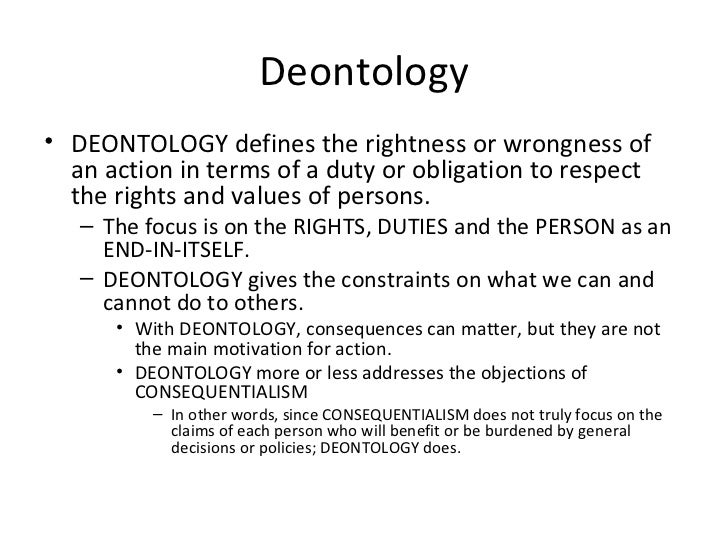
Deontology Definition Ethics. Deontological ethics is commonly contrasted to consequentialism virtue ethics and pragmatic ethics. Broad in his 1930 book five types of ethical theory. Deontology is often associated with philosopher immanuel kant. The word deontology derives from the greek words for duty deon and science or study of logos.

The term deontological was first used to describe the current specialised definition by c. The word deontology derives from the greek words for duty deon and science or study of logos. Deontology is often associated with philosopher immanuel kant. Kant believed that ethical actions follow universal moral laws such as don t lie. Deontological ethics in philosophy ethical theories that place special emphasis on the relationship between duty and the morality of human actions. In contemporary moral philosophy deontology is one of those kinds of normative theories regarding which choices are morally required forbidden or permitted.
The term deontology is derived from the greek deon duty and logos science.
Deontology is often associated with philosopher immanuel kant. Kant believed that ethical actions follow universal moral laws such as don t lie. Deontology is often associated with philosopher immanuel kant. The term deontology is derived from the greek deon duty and logos science. In contemporary moral philosophy deontology is one of those kinds of normative theories regarding which choices are morally required forbidden or permitted. Deontology is an ethical theory that uses rules to distinguish right from wrong.